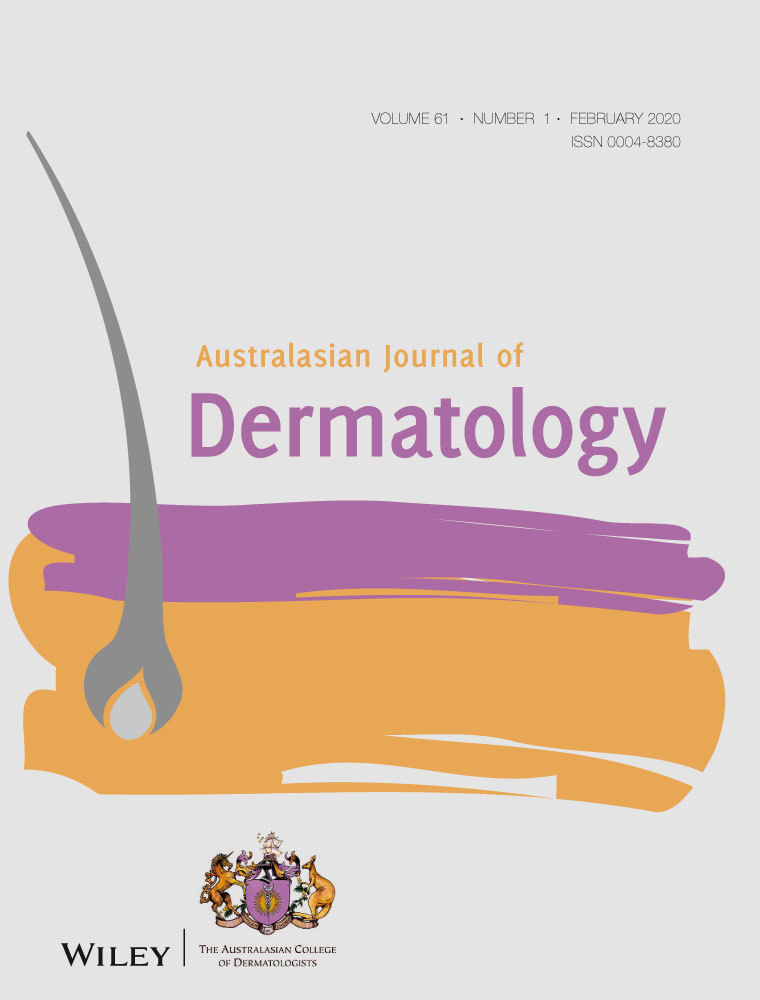Trends in the incidence of Merkel cell carcinoma in Victoria, Australia, between 1986 and 2016
Abstract
Background/Objectives
Merkel cell carcinoma (MCC) is a highly invasive cutaneous malignancy. The objective of this study was to investigate the incidence and trends of MCC in Victoria, Australia, between 1986 and 2016.
Methods
Population-based, descriptive analysis of Victorian Cancer Registry (VCR) data. The de-identified records of patients with MCC were obtained from Victoria residents diagnosed between 1986 and 2016. Trends in age-standardised incidences were examined using joinpoint analysis.
Results
A total of 1095 cases were found. Incidence of MCC was 3.9 per 100 000 for men and 1.5 per 100 000 for women. The incidence of MCC in men 66–85 is increasing at an annual rate of 4.2% (2.8–5.8%, 95% CI). However, since 2002 the incidence in women in the same age group has been decreasing. Whilst there is an overall stabilisation in the incidence of MCC, incidence of MCC for males is increasing. For MCC in males 85 years old and over, the incidence of MCC was 26.8 per 100 000 between 2012 and 2016. Relative 5-year survival for patients diagnosed between 2008 and 2012 is 50%.
Conclusion
Merkel cell carcinoma remains an aggressive cancer, especially among older men. Differences in trends seen in local data can help target preventative and early intervention management strategies in specific groups.




